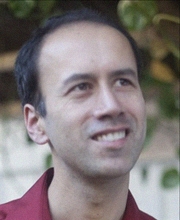Tutor HuntResources Music Resources
Wow, Are You Really Making That Up?
The similarities between improvisation in music and in language
Date : 01/04/2015
Author Information

Uploaded by : Julius
Uploaded on : 01/04/2015
Subject : Music
Communication: Language and music have a lot in common. There are situations in language where we make it up as we go along (in conversation), and there are times when phrases are prepared in advance (a speech). But even with a conversation that might seem to just happen on-the-spot, the two speakers would be constantly referring to things they have in common, things established in the past - those things draw them together, a type of bonding. So the amount of "new material" in a typical conversation is limited. In the same way, musicians jamming together will look for common ground, they will rely on conventions that most musicians of a certain level are familiar with, like a 12 bar blues. The improvising would not only be the solos, but the way the chords and rhythm are played.
In performance: Like a stand up comedian prepares his act meticulously but appears to speak spontaneously to the audience, a jazz musician improvises after 1000s of hours of practising phrases, different combinations over different structures. Rhythmic practice is also very important, maybe even more than melodic practice. A piano, saxophone or guitar solo can be like a drum solo, but with notes! And just like a comedian, an instrumentalist needs confidence in delivery. If you look confident, you can play anything!
Energy: Also, as a stand up comic will have to keep the flow going, keep the energy level going to keep the crowd interested, an improvising musician must keep the rhythm and energy of the solo flowing. He/she will draw from previous experience soloing in a similar environment. If a "bum note" is made, one that doesn't seem to fit or sounds wrong, the improviser will then work to make it sound right. you can make it appear that you "meant it". Perhaps a bit like when an actor misremembers a line and then improvises from that point to make it seem natural.
Perception towards improvisers: Sometimes when I've been teaching people the background or theory to jazz improvisation, I find some students (even ones with years' experience) are surprised there is so much theoretical background to the solos musicians like Charlie Parker created. I often hear "I thought they were just making it up, feeling it." This attitude probably comes from the image of "free jazz", those quite uncomfortable, often disturbing sounds created by some musicians in the 1950s and 60s (bored with the conventions and safety in regular jazz harmomy). They appeared to play notes at random, often associated visually with a type of Modern Art, random strokes of paint across a canvas. Perhaps that encouraged people's belief that jazz musicians just turn up and play, and have no discipline or refined methodology. Anyway, in either traditional jazz, bebop (Parker's style) or free jazz, that's clearly not the case- there are scales, chords, harmony or a conscious absence of these elements. Jazz musicians have also borrowed a lot from classical theory, and we see a lot of experimentation both in 20th Century classical and jazz music. Perhaps the tendancy to improvise in jazz comes more from the African input into American music. (There again we see improvisation in Celtic music and many other folk forms around the world)
Can't be good at everything. Often it seems that a virtuosic improviser doesn't have much to say composition-wise. Maybe that's because they spend most of their time making sure they can solo over any musical context, which hones certain skills, but perhaps they have less of a sensitivity of space for that reason, that they're always filling in gaps with notes. The successful composer/ songwriter often has the other problem, their soloing ability is limited because they've not spent the necessary 1000s of hours practising scales and phrases. Also of course, people will gravitate towards what they feel they do best. A good example of a bandleader/ composer with vision would be Miles Davis. He seemed to know how to create space, create a new musical context that his colleagues could then improvise in. Miles himself never seems to have been particularly lauded for his own soloing, but maybe that's because the landscapes he created superceded his soloing power. On the other hand, an jazz virtuoso like Oscar Peterson has not generally been known for his compositions but for his technical mastery of the piano. I'm sure jazz fans can now give me a list of those who were great at both.
This resource was uploaded by: Julius
